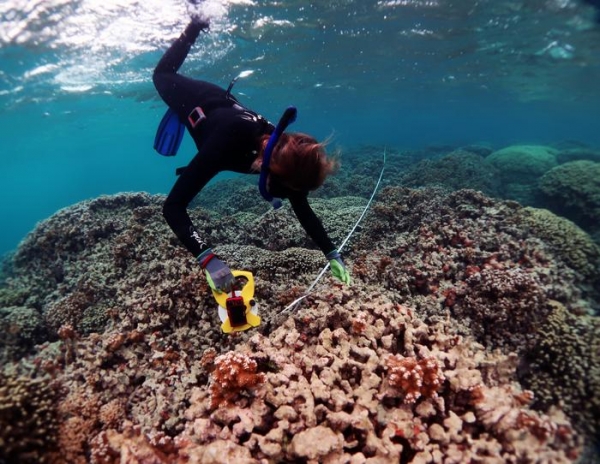From intensifying wildfires to record-breaking floods year on year, the effects of climate change have manifested in devastating outcomes on ecosystems that threaten species all over the world. One such ecosystem in peril is coral reefs, which play a major role in sustaining biodiversity in the planet’s oceans but are facing increasingly severe conditions as waters heat up leading to a phenomenon known as marine heat waves.
For nearly a decade, Katie Barott, assistant professor of biology at the University of Pennsylvania, has led a collaborative team of researchers studying two coral species in Hawaii to better understand their adaptability to the effects of climate change. Their recent paper published in the Proceedings of the National Academy of Sciences sheds light on this issue, revealing the complex and varied ways corals are adapting, or struggling to adapt, to the rapidly changing oceanic environment.
“We tracked more than 40 large coral colonies over 10 years and found that certain species have an improved ability to endure and recover from subsequent marine heat waves after surviving one such event,” Barott says. “It’s a bit like working out; the more often you exercise, the easier it is to go through the same exercise stress.”
Read more at: University of Pennsylvania
Researchers from the Barott Lab at Penn retrieve samples of coral in Kaneohe Bay in Oahu, Hawai, as part of a longitudinal study on the effects of climate change on coral reef bleaching. (Photo Credit: Kristen Brown)


